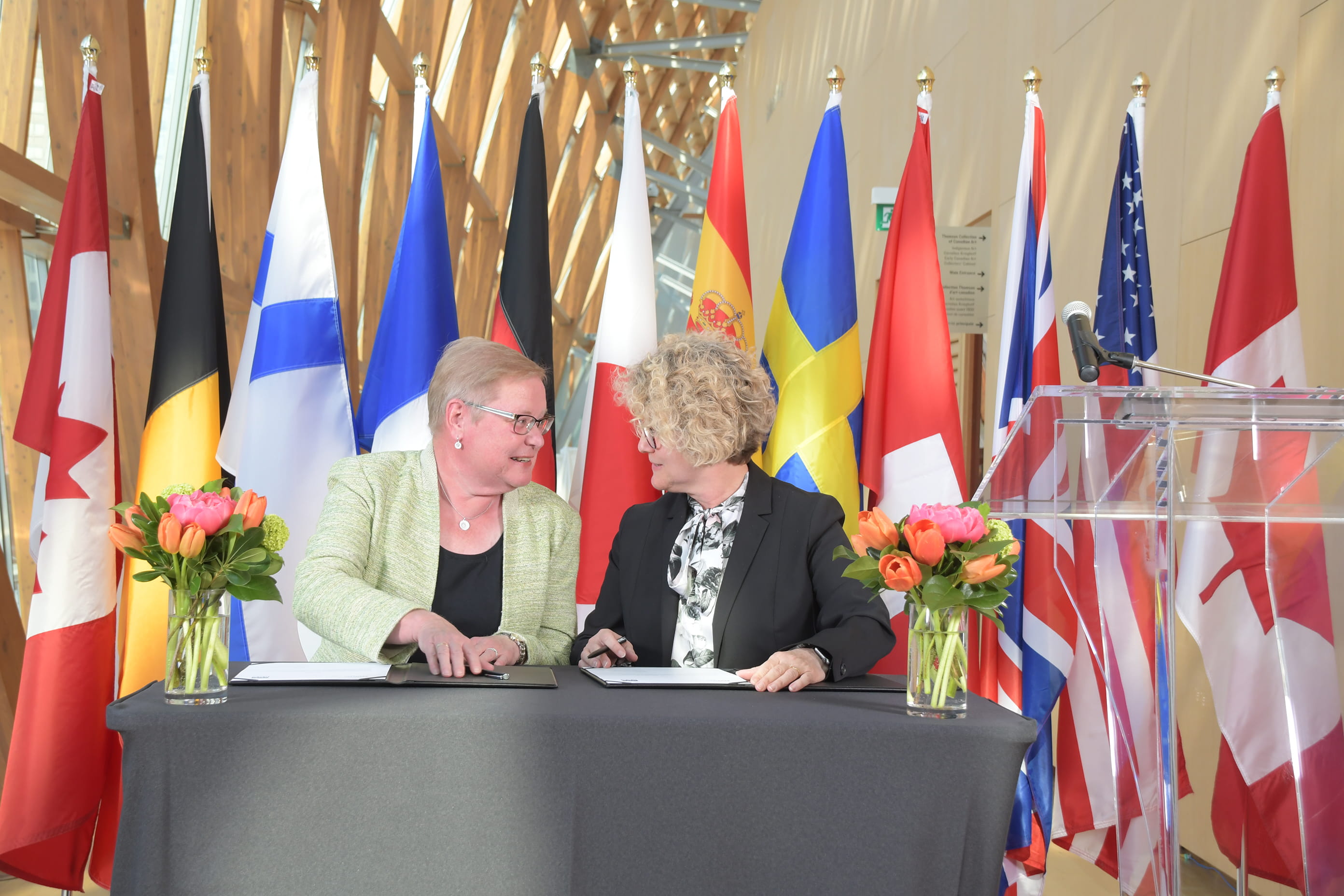A collaborative approach
Overview
Since our founding, the NWMO has been collaborating with Canadians, Indigenous Peoples and experts to design and implement Canada’s plan for the safe, long-term management of used nuclear fuel.
We work to build sustainable relationships with interested communities, individuals and organizations. These include Indigenous Peoples and Canadians within the Wabigoon Lake Ojibway Nation and Ignace area, where Canada’s deep geological repository for used nuclear fuel will be hosted, and people in the surrounding area.
We also place a strong importance on engagement with young people who will one day assume responsibility for the management of Canada’s used fuel.
Dialogue, collaboration and shared decision-making help ensure that Canada's plan for used nuclear fuel continues to respond to the values and concerns of Indigenous Peoples and Canadians.
Beyond collaborating with communities, we work closely with several advisory bodies, including our Advisory Council and the Council of Elders and Youth.
Our work also benefits from ongoing collaboration with municipal organizations, independent academic researchers and technical experts across the globe, as well as sister organizations in many countries.
Looking ahead, collaboration will play an important role in all aspects of our work, including the construction and operational phases of the project.
Youth engagement
Canada’s plan for the long-term management of used nuclear fuel will be implemented over many decades. Given the long time frame, engaging youth is an important consideration. We continue to explore various activities and outreach programs to help young people learn about and be involved in the implementation of this project.
We support various youth activities, ranging from education and cultural initiatives to community well-being and sports programs. On science learning programs in particular, we have partnered with Science North, Shad and Scientists in School to deliver activities and workshops to young people.
Over the years, the NWMO has engaged young people in various ways, including:
- Involving youth in social research and dialogue activities.
- Involving Indigenous youth in engagement initiatives and forums.
- Providing presentations to post-secondary students in relevant disciplines.
- Building understanding and fostering opportunities for youth in potential host communities and regions.
- Sponsoring initiatives that help young people develop science-related skills.
Additional documents
Municipal Forum
The Municipal Forum was an assembly of municipal leaders with experience and expertise in municipal issues and challenges. Established by the NWMO in 2009 in collaboration with the Federation of Canadian Municipalities, the Municipal Forum provided advice on municipal perspectives and processes to help guide the NWMO’s engagement and outreach.
The forum helped the NWMO incorporate best practices when communicating with local governments and associations, as well as helping us understand the needs and practices of municipalities that were involved in the site selection process for Canada’s used nuclear fuel repository and were considering hosting the project.
This group completed its mandate in 2024.The NWMO continues to engage broadly with municipalities and municipal organizations to gain insight into municipal perspectives and priorities.

Partnerships with Canadian universities

International co-operation and research
The NWMO has co-operation agreements with our counterparts in Australia, Belgium, Finland, France, Japan, South Korea, Sweden, Switzerland, the United Kingdom and the United States. We also have a memorandum of understanding with our counterpart in Taiwan.


